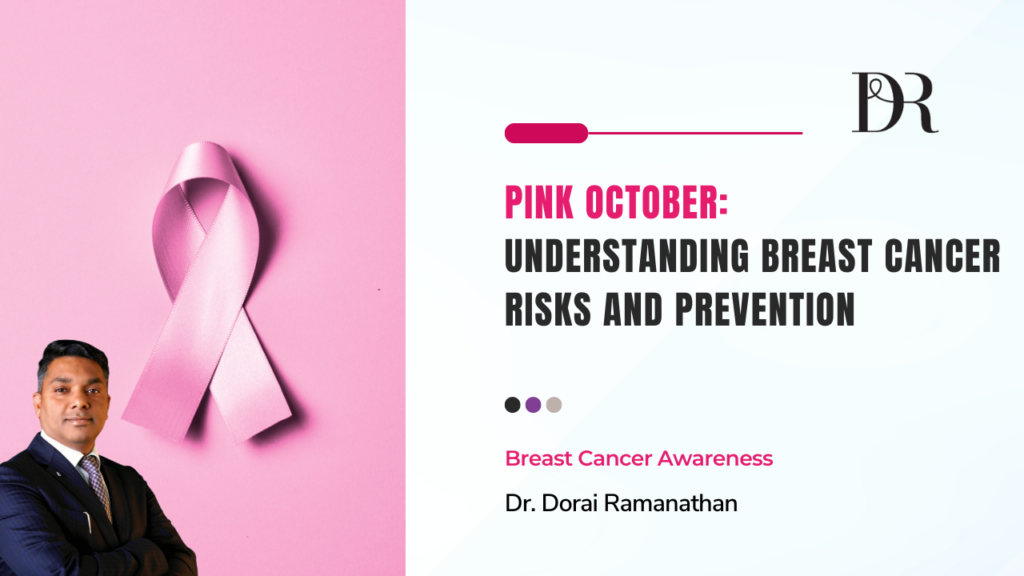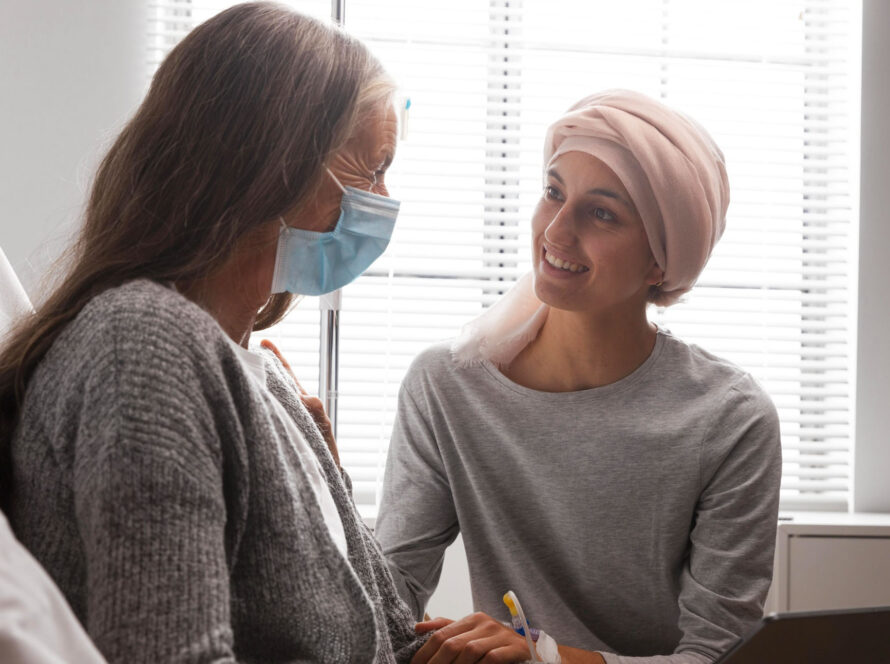
The calendars have turned to October and you know what that means Pink October; the month dedicated to breast cancer awareness and prevention programs. We know the life and the constant presence of breast cancer, in ourselves and/or in those whom we know. Out of the eight women, one is likely to develop breast cancer at some point in their lives; therefore, each woman ought to be engaged and knowledgeable every day. But knowing or estimating this risk, as well as taking precautions to decrease it and consulting a professional when something seems to be wrong, we are free to take control into our hands.
Hi everyone, this is part of our Pink October series, where we help educate you about breast cancer and its prevention and treatment. Breast Cancer Awareness Month is an opportunity to provide effective tips and recommendations from maintaining your health. It is a good time to look at one of the most essential issues that have become a focus of breast cancer risks and prevention.
Let’s discuss what you and other women can do to decrease your risk of breast cancer in the following article with focus on family history, genes, and lifestyle. We’ll also give you tips from Dr. Dorai, a specialist in cancer, so you never have to be threatened by the big C again. Right Let’s just get started and take the very first step to have a better and improved life ahead!!
While going through our pink outfits and reading as many breast cancer survivor stories as possible, let’s learn more about why breast cancer is so dangerous, what factors increase the risks of getting this disease, and ways to prevent breast cancer.
Breast Cancer Awareness: Why It Matters
Breast cancer has remained one of the leading types of cancer that affect women globally. The World Health Organization has estimated that the rate of new cases rose to over 2.2 million in a single year, in 2020. The good news, however, is that as soon as it is diagnosed early and treated, breast cancer is not among the fatal diseases. It is therefore important to understand Breast Cancer Risks. Breast cancer is common, although some women may be at greater risk than others. These risk factors include:
1.Family History and Genetic Mutations:
Your family history and genetic makeup can help you assess your breast cancer risk. Learn how to:
Identify key relatives who have had breast cancer
Understand the role of genetic mutations like BRCA1 and BRCA2
- Discuss genetic testing options with your doctor
- Use this information to inform your prevention and screening strategy
2. lifestyle Choices:
Knowing your lifestyle habits can help you understand your breast cancer risk factors
Maintain a balanced diet by taking more of fruits, vegetables and whole grain foods
It is also important that an individual perform exercises to lower risks.
- Reduce alcohol intake and refrain from smoking
- Follow a healthy diet and exercise regularly as well as do away with stress
3. Radiation Exposure and Environmental Factors:
Radiation Exposure and Environmental Factors:
Exposure to radiation and certain environmental factors can increase your breast cancer risk. Learn about:
The risks associated with radiation therapy and imaging tests
How to minimize exposure to chemicals and pollutants
The impact of air pollution and other environmental factors
- Ways to reduce your exposure and protect your health
4.Age and Gender:
The studies show that age and gender are factors which influence breast cancer risk.
Identify key relatives who have had breast cancer
Understand the role of genetic mutations like BRCA1 and BRCA2
Discuss genetic testing options with your doctor
- Use this information to inform your prevention and screening strategy
Prevention Strategies for Breast Cancer:
Several of the factors are beyond your control, but there is much you can do to lower your chances of getting breast cancer. If you incorporate these preventive measures in your daily lives you will be safe from breast cancer.
1. Get Screened Regularly:
This is a very important procedure, since breast cancer if diagnosed early is easier to treat. Get regularly checked by a doctor or any other qualified medical person preferably at the age of 40. These are mammograms that are taken once, yearly or biyearly and CBEs. Mammography is the use of low energy X-rays to picture the breasts while CBE is a physical breast examination conducted by a competent professional. The history and physical exam provides a baseline of the patient and could also identify changes in tissues such as tumors or calcification to follow along the years.
2. Maintain a Healthy Weight:
Being overweight is amongst major risk factors for breast cancer.An excess weight, especially postmenopausal, leads to rise of hormone, estrogen, which stimulates breast cancer cells. Hormonal conception also lowers the risk while losing weight through proper diet and exercise also regulates hormones to the normal level. Try to keep your BMI within the range of 18.5 to 24.9, and avoid the yo-yo or fad diets at all cost
3. Exercise Regularly:
One component for health promotion and prevention of breast cancer is exercise. Try to do 150 minutes of moderate-intensity aerobic physical activity per week or 75 minutes of vigorous-intensity aerobic physical activity per week.The following are ways through which exercising decreases the incidence of breast cancer, Hormone control, Weight control, Health improvement. cancer risk. By incorporating these prevention strategies into your lifestyle, you can help protect yourself from breast cancer
4. Limit Alcohol Consumption
Most of the time breast cancer risk can be minimized by eliminating the intake of alcohol or consuming moderate amounts of it. Alcohol mainly affects the breast tissues by raising the levels of certain hormones like estrogen that stimulate growth of breast cancer. To cut the Health risk as much as possible, it is also recommended to limit the intake of alcohol to one drink per day, which means eliminating binge drinking. Likewise, in order to massively decrease the risk it is also beneficial to consider healthier alternatives such as water, juice or tea.
5. Avoid Smoking
Smoking also acts as the risk factor associated with breast cancer. Stop smoking and stay away from second hand smokers in order to minimize chances of being affected.
These are some of the ways to ensure that you avoid developing breast cancer or even otherwise protect yourself and live a very healthy life. As you have seen, prevention is better than cure – especially when it comes to diagnosing such diseases in good time.
Dr. Dorai's Expert Insights
After establishing the goal and introduction to the topic, we interviewed Dr. Dorai, a cancer expert focusing on the topic. ‘Detection at the initial stage is crucial,’ he adds. Mammographic screening and breast self- examination: the rules can help to reduce the death rate. This is good nutrition, which if exercised along with other preventive measures of knowing one’s pedigree reduces the chances of getting this sickness.
Things to consider when we come to the end of Pink October is that breast cancer awareness and prevention are important for the noble cause of saving lives. There is a lot one can do to prevent a risky situation in one’s life and that of your relatives and friends if you know the risks involved.
Be Part of Pink October Campaign
For the Pink October this year let us stand hand in hand and help reach out to the affected persons and fight the spread of the disease. Stories, Pink, and Screening: It’s time to share your story, come dressed in pink, and remind your family, your friends and yourself to go for your screening.
Breast Cancer awareness matters, and early detection of the causes and treatments can enhance survival chances. join us in this revolution and be a part of Pink October



